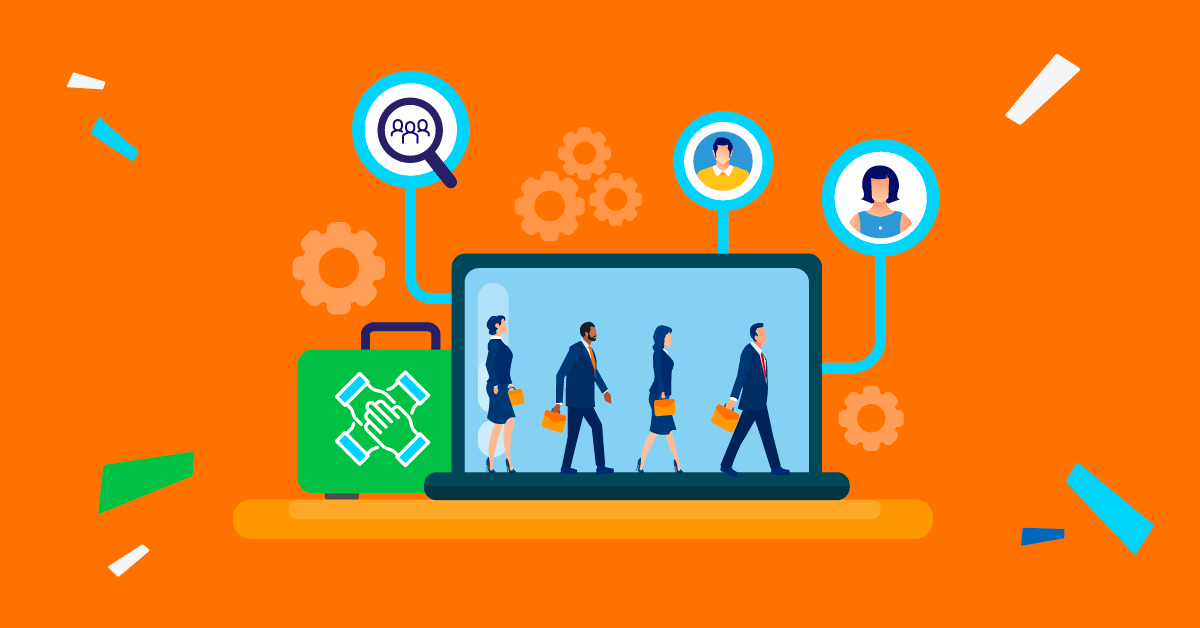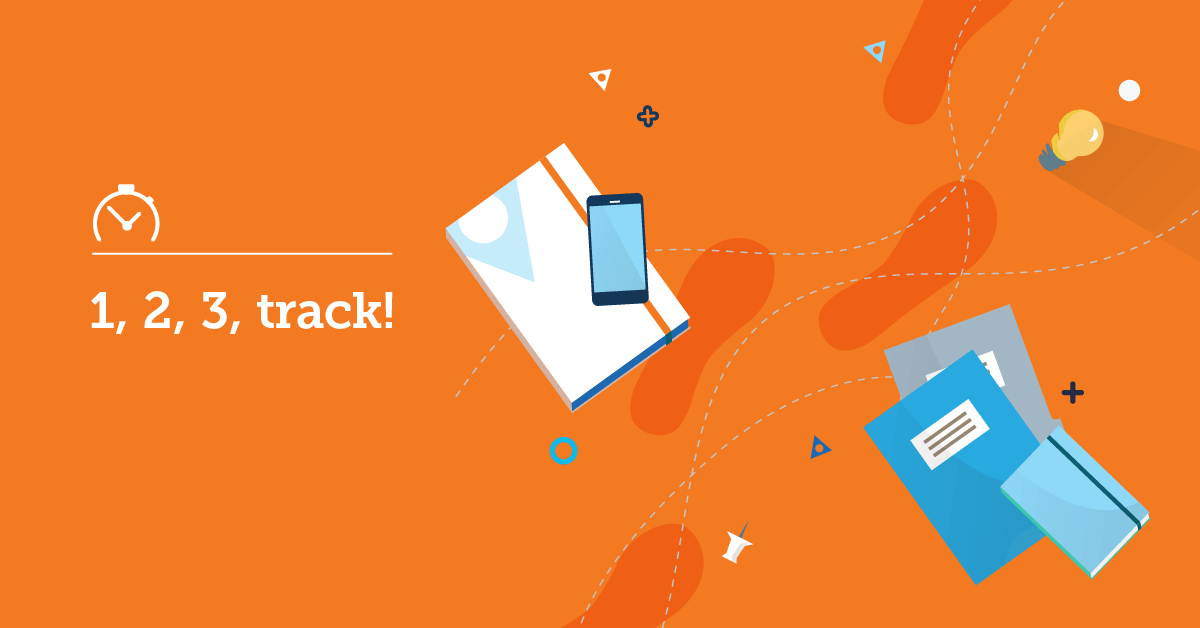With the right HR software, organizations can automate their processes, from new job requisitions and employee satisfaction surveys to daily reminders and time-off requests. Moreover, crucial HR functions like hiring and performance evaluation can be easily handled with the help of the right HR tools.
But before going shopping for your next HR software, join us as we dive into the different categories and explore how and which HR tools can help you and your teams execute daily processes seamlessly.
5 must-have HR tools for your business
Selecting the best HR solution for your organization requires careful planning and evaluation, which makes it a rather challenging task. Before making any decision, it is important to develop a thorough plan, examine your needs, and put into consideration all the available options. Below you will find the HR software that stands out from the competition and is sure to elevate your HR processes.
1. Human Resources Management System
HR teams handle a plethora of employee data, which is rather extensive and must be entered, stored, and retrieved in a secure and efficient way. A Human Resource Management System is the best tool for processing such information without risk. An HRMS is much needed for seamless employee management since you can store and organize data like employee profiles, work hours, attendance records, holidays, and more.
The majority of such tools usually offer a core platform for HR management but also include integrations for payroll and performance evaluation management and benefits administration. In fact, you may come across the term Human Resources Information System (HRIS), but this differs from HRMS. An HRIS usually doesn’t come with features on talent and performance management like most HRMS. If you’re looking for something simpler, then an HRIS might be a better choice.
2. Applicant Tracking System
You can better organize and speed up your recruitment when using HR digital platforms. With such platforms, you can enjoy innovation and convenience, which are absent in older hiring techniques.
For instance, candidate selection is easier with a recruitment tool as you can collect data about people’s skills or experience through assessments, then make data-driven shortlisting, and lastly, decide who to hire. Also, HR can automatically manage processes like publishing job openings, receiving and categorizing applications, and scheduling interviews. This way, you can save valuable time as you don’t have to do these tasks manually.
3. Performance evaluation system
The employee performance evaluation can be tracked by using behavioral approaches. It is common to plan an annual meeting between employees and HR managers to discuss performance and bonuses.
Performance reviews will be more meaningful and objective when your process is refined and structured. For instance, asking the same questions and evaluating using pre-defined criteria. Then, it’s essential to record answers and comments, as well as document follow-up plans. If you had to do all of this manually, it would take forever.
But if you have a performance evaluation system at hand, you can automate processes like setting clear objectives, monitoring, evaluating with specific KPIs, reviewing, sharing and storing data in a secure environment in a simplified way.
4. Learning Management System
Planning a training strategy requires a lot of processes to be conducted in a seamless way. Distributing educational courses and training sessions to your teams can be simplified in the modern workplace.
With the help of an LMS, you can benefit from automations like adding users to courses, sending notifications, evaluating, and reporting. This SaaS platform also gives you the ability to train your teams, whether in person or online. An LMS is the perfect HR tool that can assist in a variety of HR processes like preboarding, onboarding, employee upskilling or reskilling, and more. Most LMS available, offer mobile learning integrations making training accessible anytime, anywhere, asynchronous or synchronous, to better cater to the needs of your people.
In addition, this essential component of an effective learning strategy boosts employee engagement with microlearning, gamification, various content formats (PDFs, videos, animations), ready-made courses, and web conferencing integrations.
Training becomes automated through self-directed learning and eases HR processes a long way. Overall, this HR tool can help you by:
- Organizing and delivering training material
- Building tasks for employee skills development
- Evaluating progress
All in all, HR departments can design, monitor, and measure employee training and development risk-free, and in a timely manner.
Looking for an eLearning platform to simplify training?
Create online training courses in no time with TalentLMS.
The training platform that users consistently rank #1.
5. Payroll system
One particularly crucial task of the HR department is the efficient management of employees’ payroll. There haven’t been significant changes in how payroll, tax, and employee payments are typically processed in comparison to the past.
However, compared to conventional payroll administration software, new payroll HR tools come with a variety of enhancements. Some of them are the simplification of processes, cloud-based management, and clarity for employees who can access their data remotely and evaluate their compensation. Also, HR professionals can establish parameters for each person and set individual salaries in order to ensure fairness or facilitate talent management and career development plans.
Salary management platforms also help employees manage their personal finances better with features like on-demand pay.
What to consider when picking the right HR suite
The selection of the HR tool that fits your needs is a very important process, but it doesn’t have to be an intimidating one. The HR software your team needs must be carefully picked as it’s essential for your seamless business administration. In fact, according to a study by PwC, 36% of HR leaders are considering changing their current HR tool when their subscription ends. The reason why lies in the challenges HR experts face with budget (28%) and integration with other technology solutions (27%) being the most prominent ones.
That being said, picking the right HR suite needs careful consideration. Let’s go through some tips that will assist you in choosing the exact software your organization can benefit from.

The first step to the software selection process is to carefully examine which are your organization’s specific needs. While creating a clear picture of your priorities, ask yourself the following questions:
- How satisfied are you with your current HR tool?
Evaluating the HR software you’re using is something you should consider doing before making a new selection. Take a look at it and examine the advantages and disadvantages it brings. Analyze the work being conducted on the current platform, define the processes, and pinpoint the areas of improvement. For example, cybersecurity is one of the features you shouldn’t miss. A great idea is to plan a brainstorming session with the rest of the HR department members, but also other teams which can provide useful insights when it comes to using the software to communicate with HR. - Which are the challenges your HR team faces?
Your organization might be growing, hiring regularly, or conducting employee evaluations more frequently. These are signs that your HR team might be facing new, bigger challenges. Besides proper HR teams training you must select an HR tool that provides all the necessary features that eases the work of the HR department. For instance, you should be looking at the user access number, an applicant tracking system, performance metrics, scheduling, and payroll management. Moreover, you should reflect on selecting a software that provides support in case your team members are facing difficulties when using it. - Which are the hurdles you face when creating a positive employee experience?
HR teams must make sure that employees are satisfied with their roles and responsibilities, but also with the benefits their company provides. As a result, the right HR software should assist in the process of creating a positive employee experience. For instance, you should look for an HR tool that enables time off tracking, cybersecurity, and benefits administration. - Are you using any other HR systems? Can they be integrated in one platform?
Let’s say you’re using an LMS for most of your internal processes. Before selecting the HR suite you need, you must narrow down your options to those that are compatible with your LMS (or other administrative and training software). Changing all software can bring extra costs to your business, so you should plan accordingly.

- How tech-savvy is your team?
HR solutions differ from one another. Not all of them are easy to use, and your people might not be familiar with the new tool implementation you’re considering. This is why you could opt for an HR tool that provides support or training and tutorials so that your HR teams discover the details of each feature and avoid problems when using it in practice. - What is your budget?
A lot of factors might affect the cost of HR software. This doesn’t mean, however, that paying the highest price will give you the best solution. It all depends on the needs of your company and your budget. You want to spend money on an HR tool in order to cut costs, not increase them.
Making the right (final) decision
As businesses grow and needs change, evaluating the tools you’re using is a one-way road. It doesn’t matter whether your current HR tools are a legacy system or a recent purchase. If they don’t meet your requirements anymore, you must start reviewing your existing suite and try out new tools that will bring positive results to your teams and business.
| Tags: Employee Training,Tools for Training and Development


![Skills Gap Analysis Template: Identify Training Needs [Downloadable Spreadsheet]](https://images.www.talentlms.com/blog/wp-content/uploads/2021/01/TLMS_20230612a_1200x628.png)
